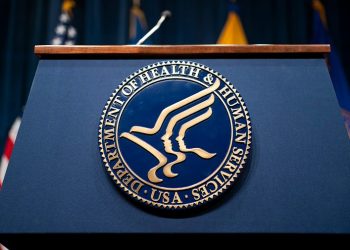The Biden administration announced plans on Friday to tamp down on “junk” insurance plans and surprise medical fees as part of the “Bidenomics” agenda and its goal of lowering health care costs for Americans.
Through its newly proposed rules, the White House is aiming to crack down on short-term health plans, or “junk plans” as critics refer to them.
Short-term plans are not required to abide by Affordable Care Act (ACA) protections. These less-expensive plans offer coverage for less than a year, often excluding people with pre-existing conditions and don’t cover as many benefits.
The Obama administration had passed regulations aimed at limiting the use of these types of plans, in an effort to encourage people to sign up for plans under ObamaCare. The Trump administration, which had promised to repeal the ACA, later issued regulations making short-term plans more accessible
Now the current White House is looking to counteract the actions of its immediate predecessor.
“Short-term plans are intended to provide temporary coverage as people transition from one source of coverage to another like when we’re between jobs,” Neera Tanden, Assistant to the President and Domestic Policy Advisor, said in a press briefing.
“Under the previous administration, however, companies were allowed to take advantage of loopholes and sell what we call junk insurance for much longer than intended, up to three years,” she added.
If finalized, the rules proposed by the Biden administration would limit the initial duration of junk plans to three months, just as the Obama administration’s regulations had done.
Tanden also pointed to instances where customers fall under the impression they’re paying for comprehensive coverage and then were required to foot thousands of dollars for medical bills. She cited one case where a man in Montana was left with a bill of $43,000 because his insurance provider claimed his cancer was a preexisting condition.
The new rules would also require short-term insurance providers to specify that they do not provide comprehensive coverage akin to traditional health insurance and they would also have to clearly disclose the limits to the benefits that customers receive.
The Consumer Financial Protection Bureau, the Department of Health and Human Services (HHS) and the Treasury will collaborate to look into whether organizations that encourage people to sign up for short-term plans are breaking the law. These departments will also be accepting public comment on the proposed rules before they are expected to be implemented later this year.
Along with actions aimed at junk plans, the administration also announced new proposed rules to prevent surprise medical billing.
Oftentimes, patients go to a hospital that is in-network only to be informed by their insurance provider that the facility was not in-network due to a technicality or a provider they did not choose to receive care from was specifically not in-network.
“Frankly, what they are doing is gaming the system. This is not allowed and as our guidance will describe, it must end,” Tanden said. “The Biden-Harris administration rules are already preventing 1 million surprise medical bills every month. That is a huge comfort to millions of Americans.”
Congress passed the No Surprises Act in 2020 to stop these sorts of practices and the Biden administration is now clarifying with its proposed rules that instances of surprise billing are in violation of federal law.
The Biden administration will additionally be looking into predatory credit cards and loans that patients sign up for to pay their medical bills. These options can lead to higher costs for patients even when lower-cost or no-cost options are available.
As the White House noted in its statement, some providers may encourage the use of these loans in order to receive payments faster.















